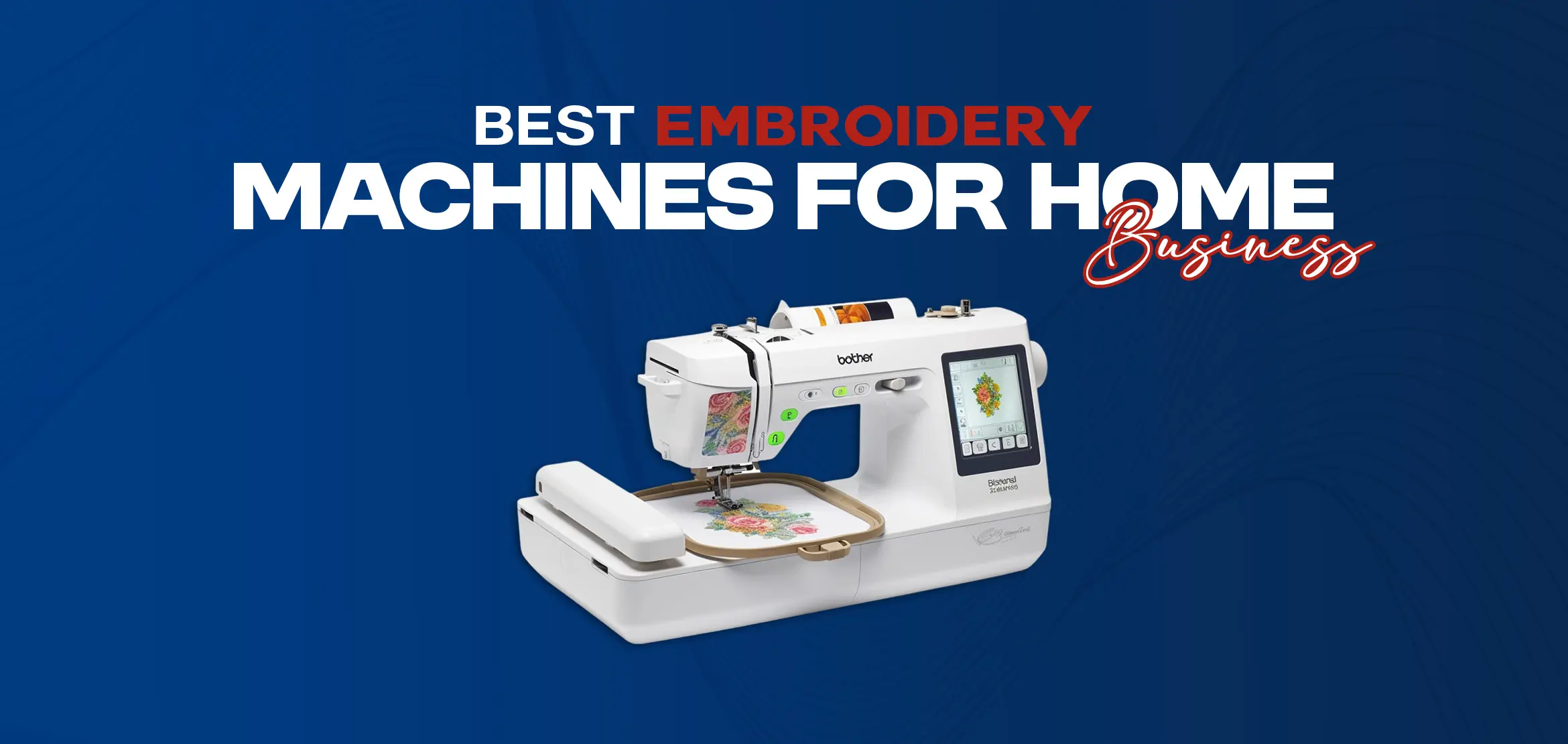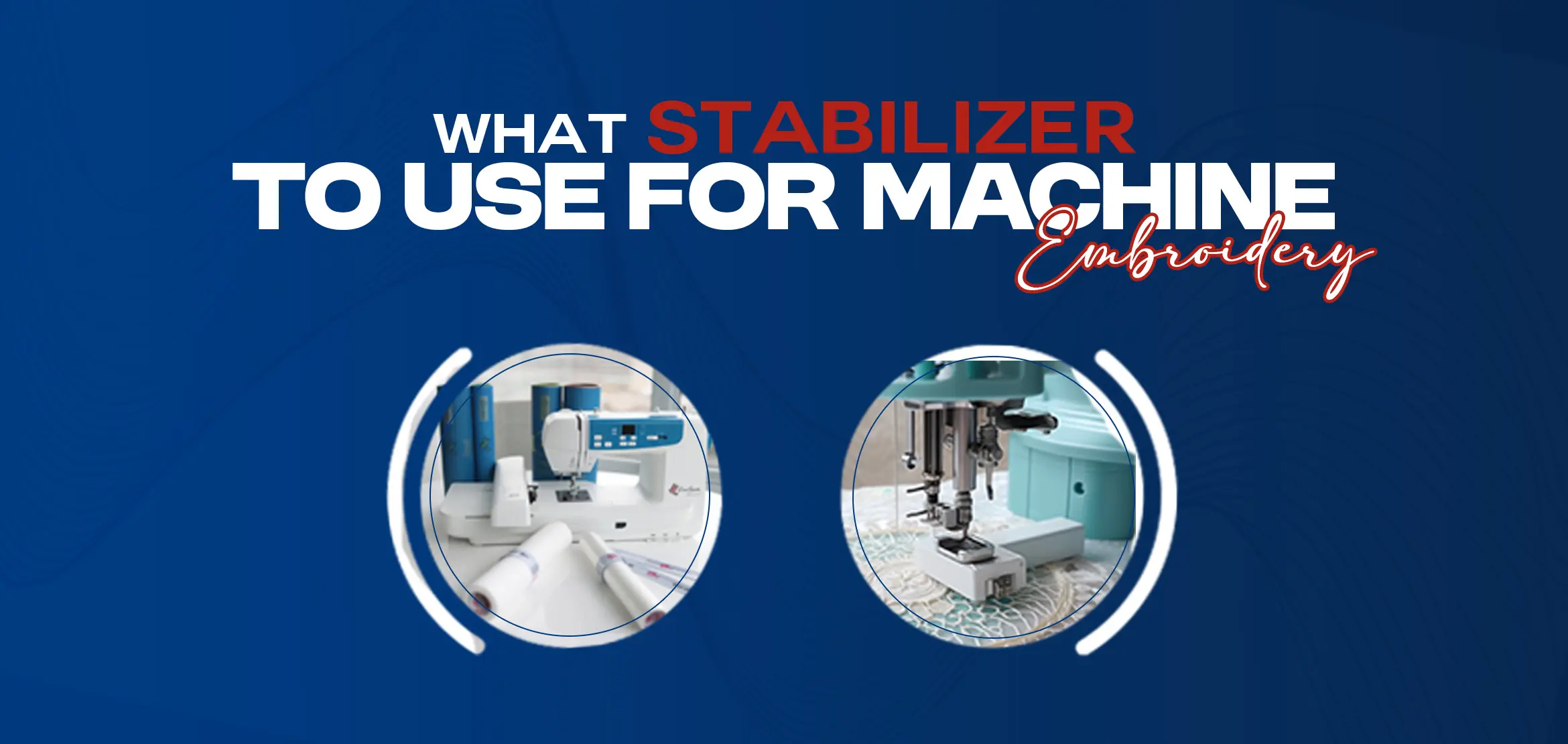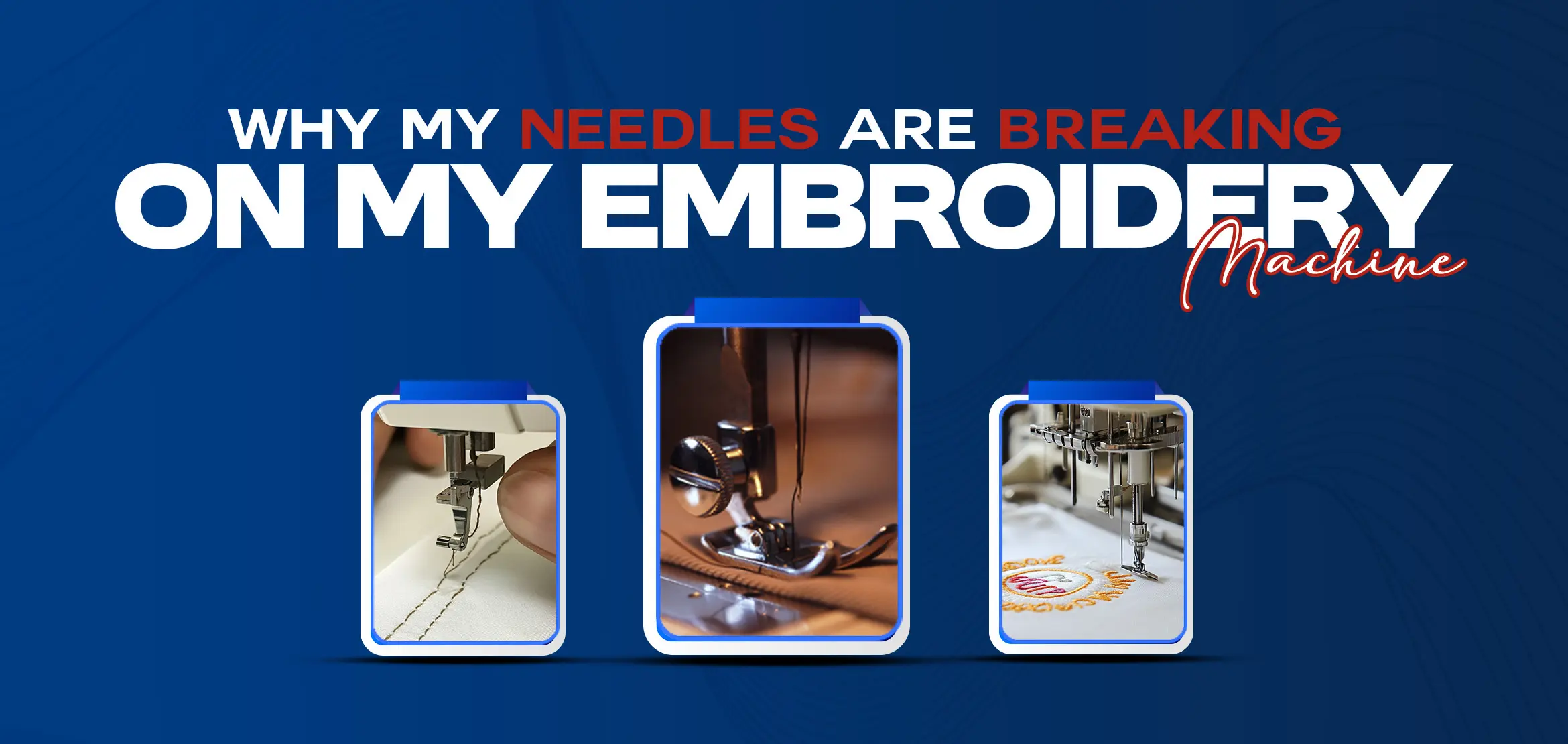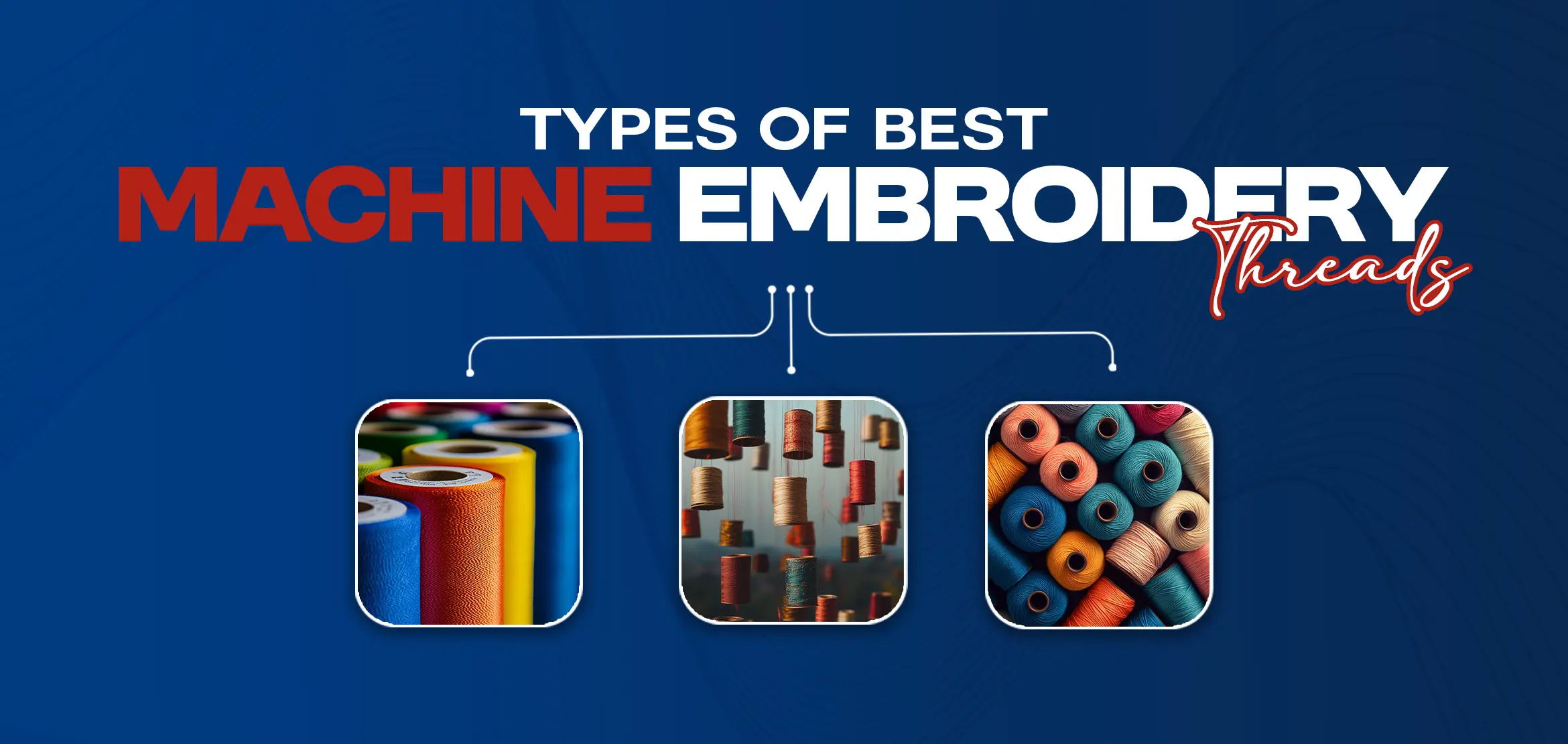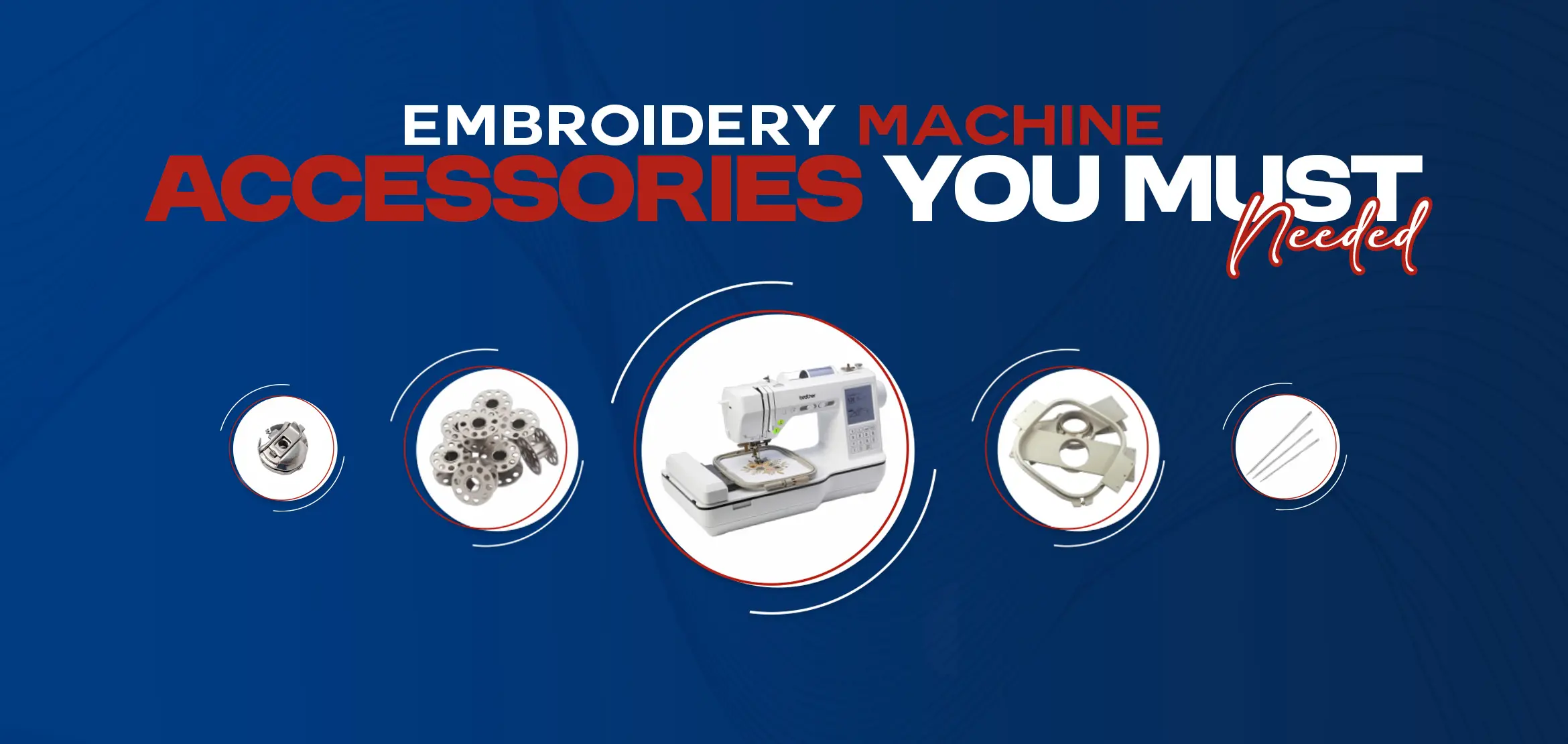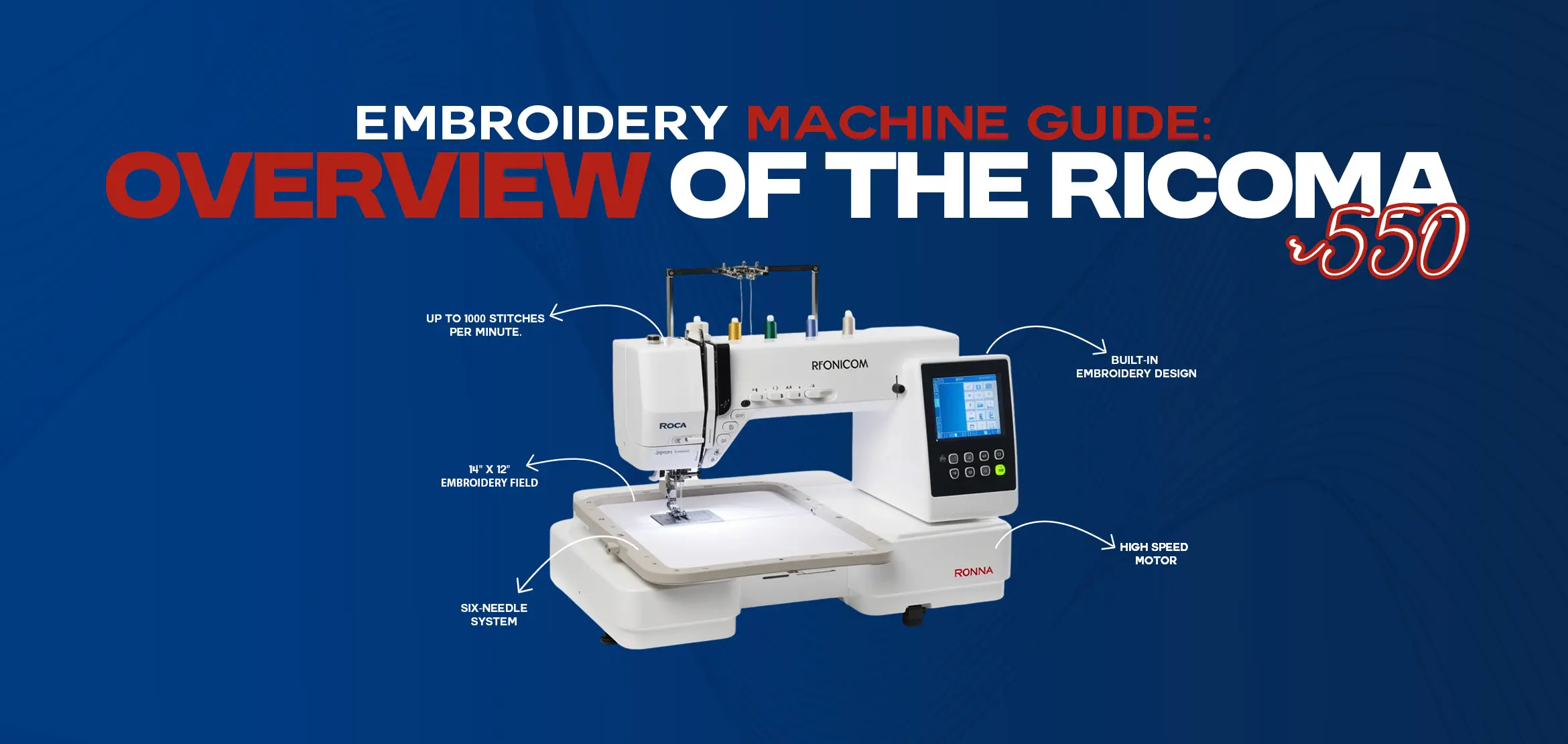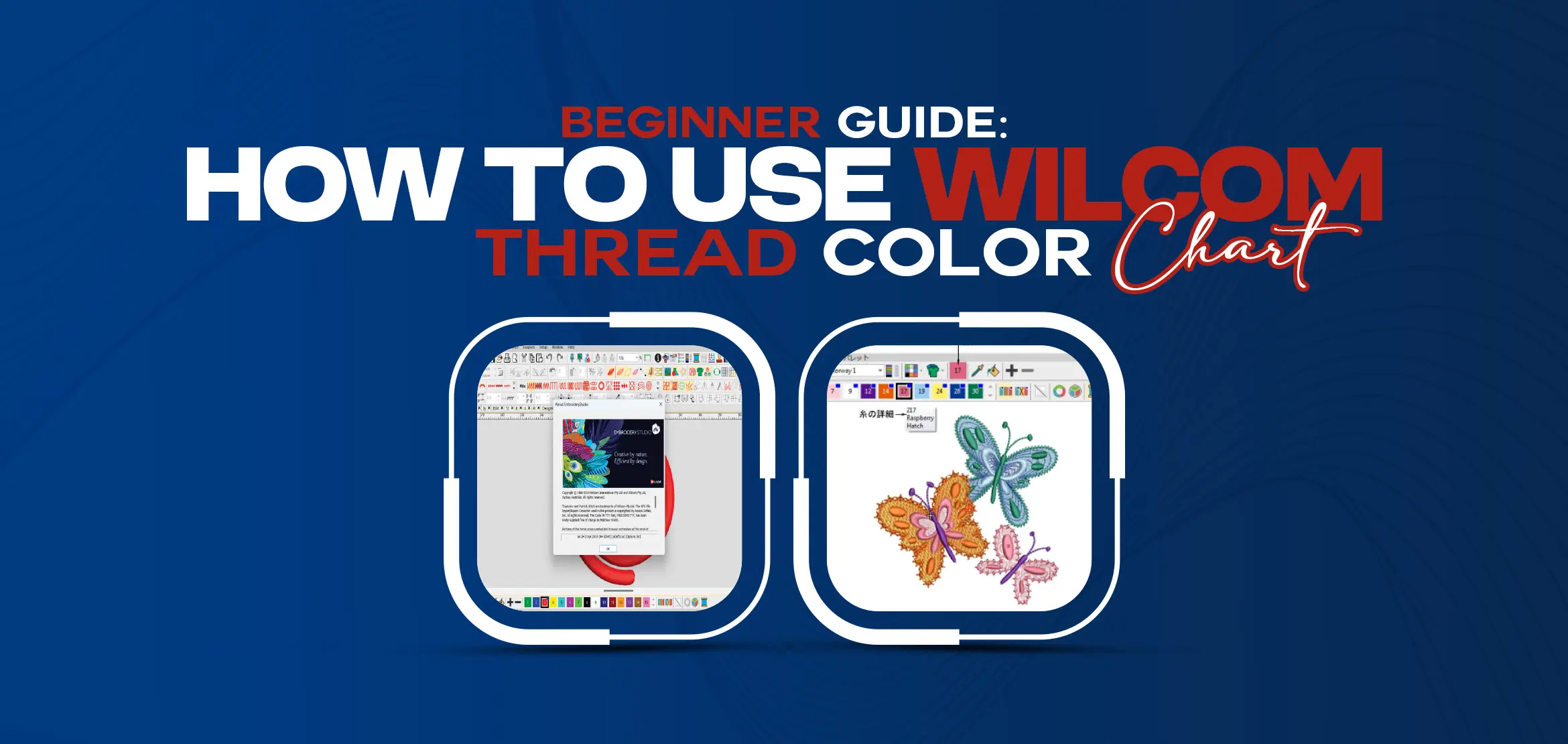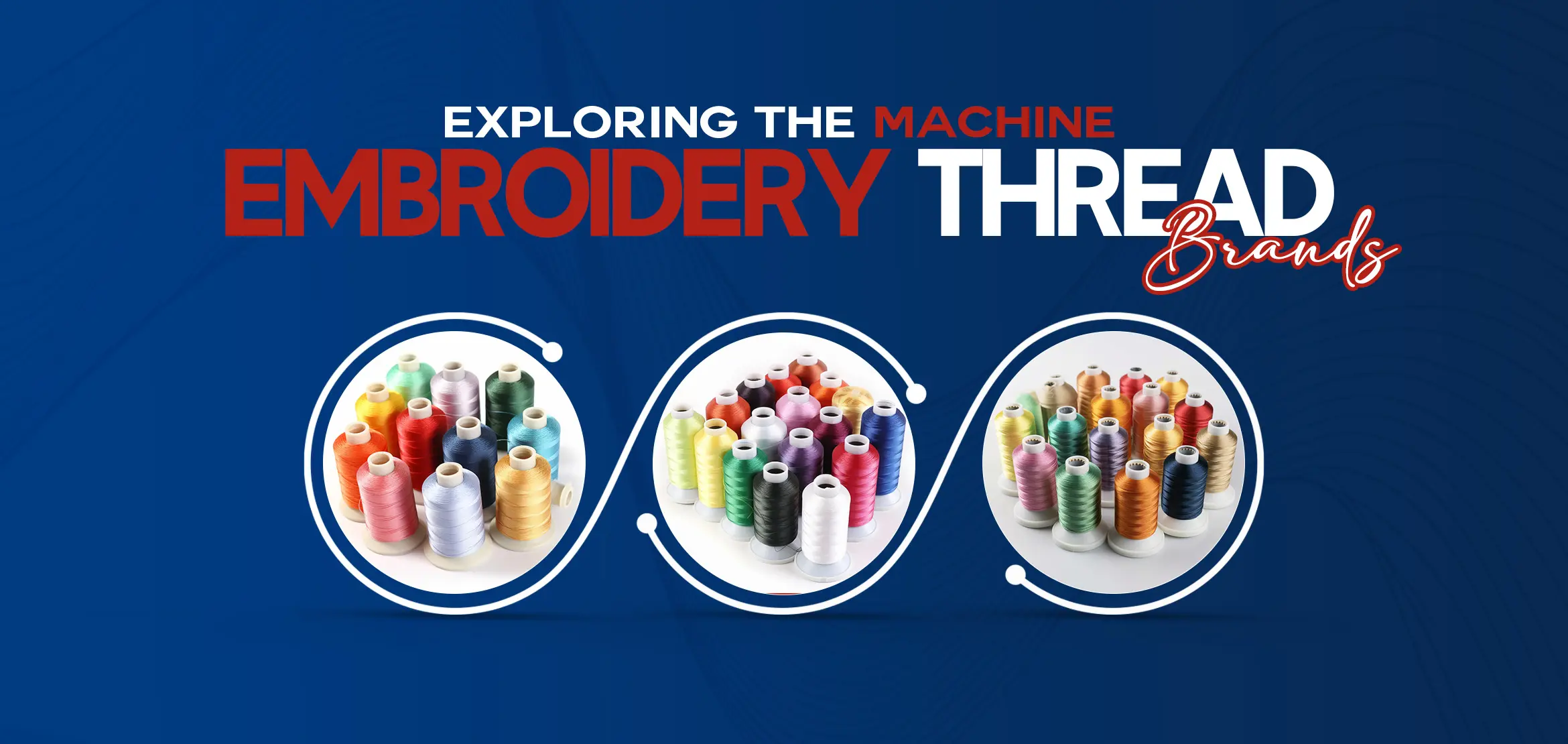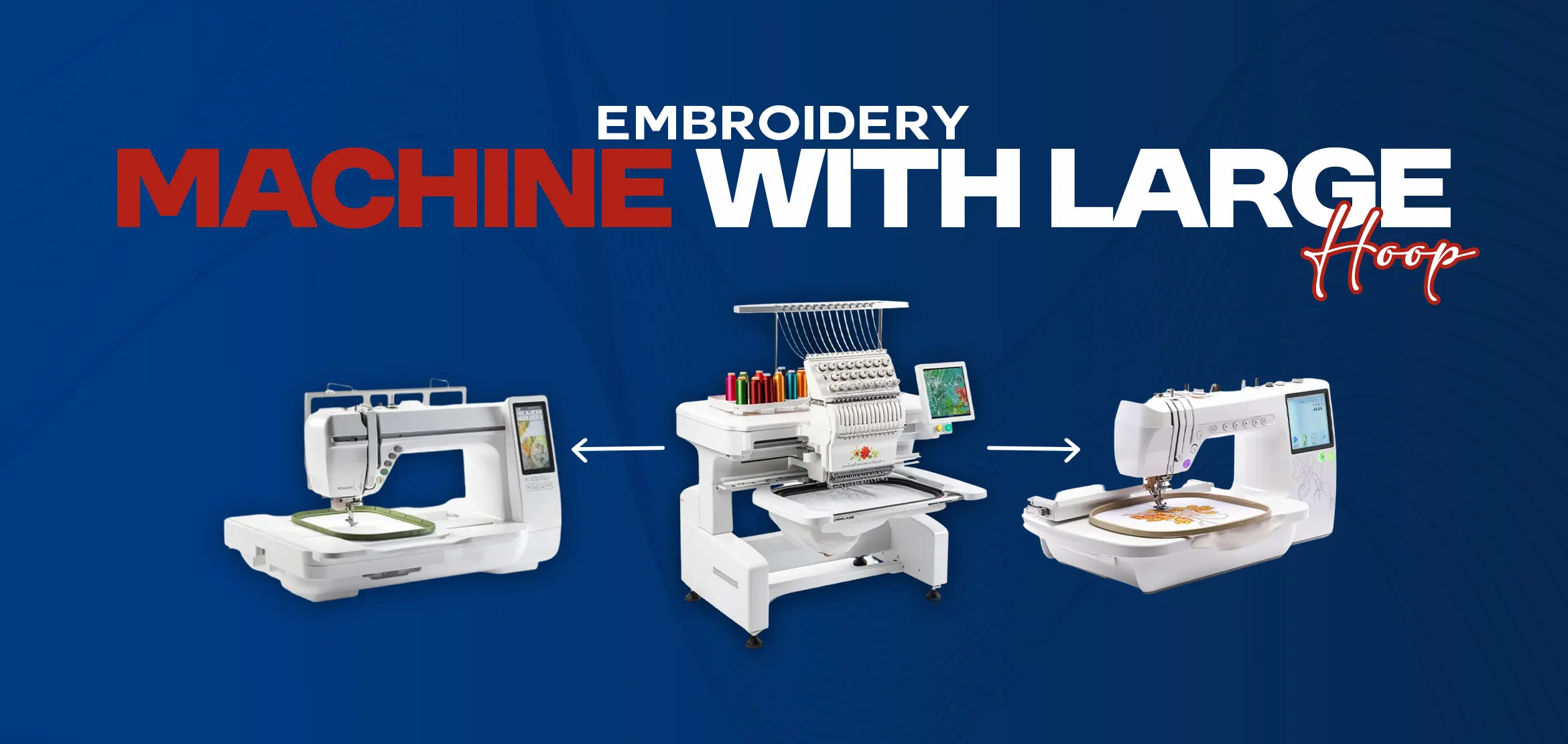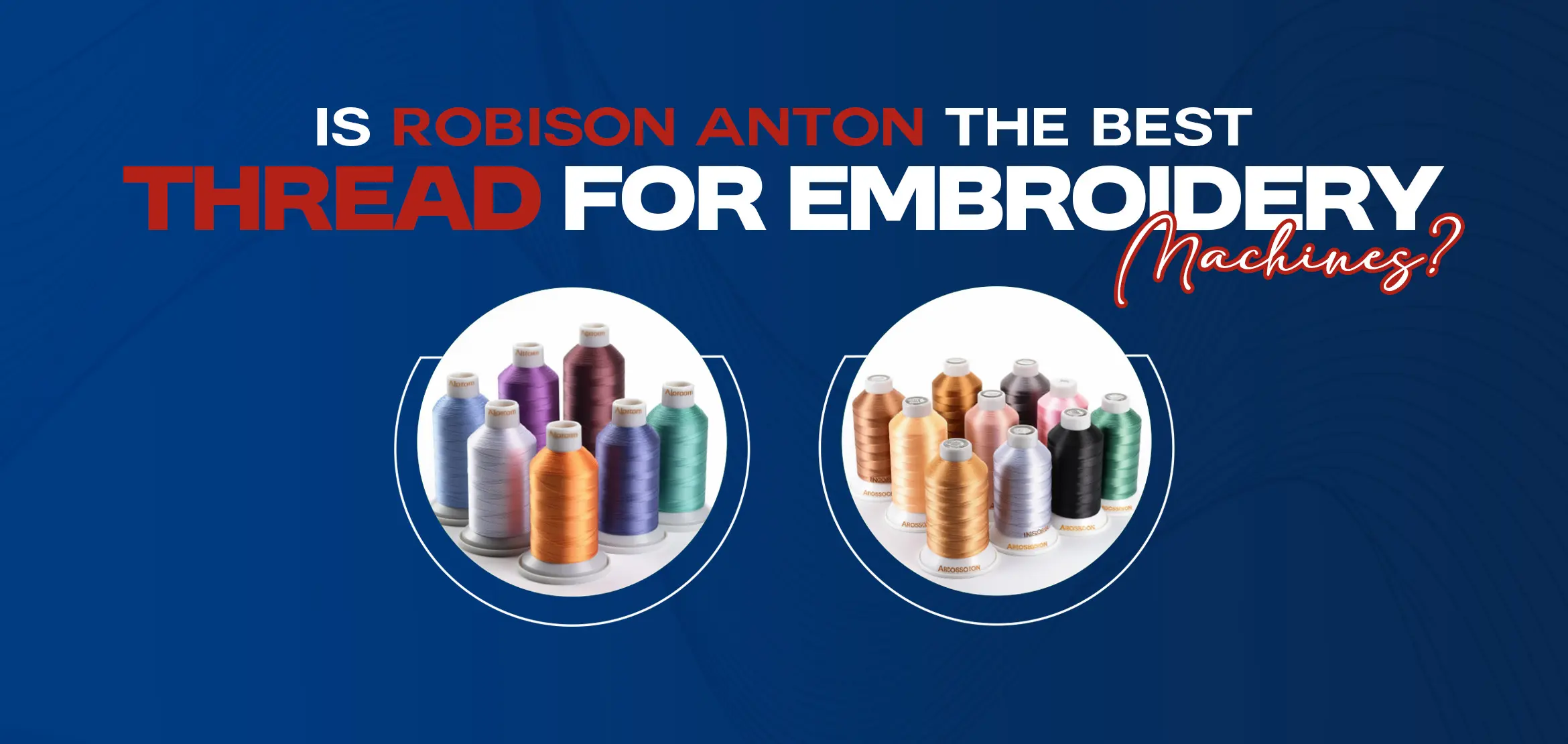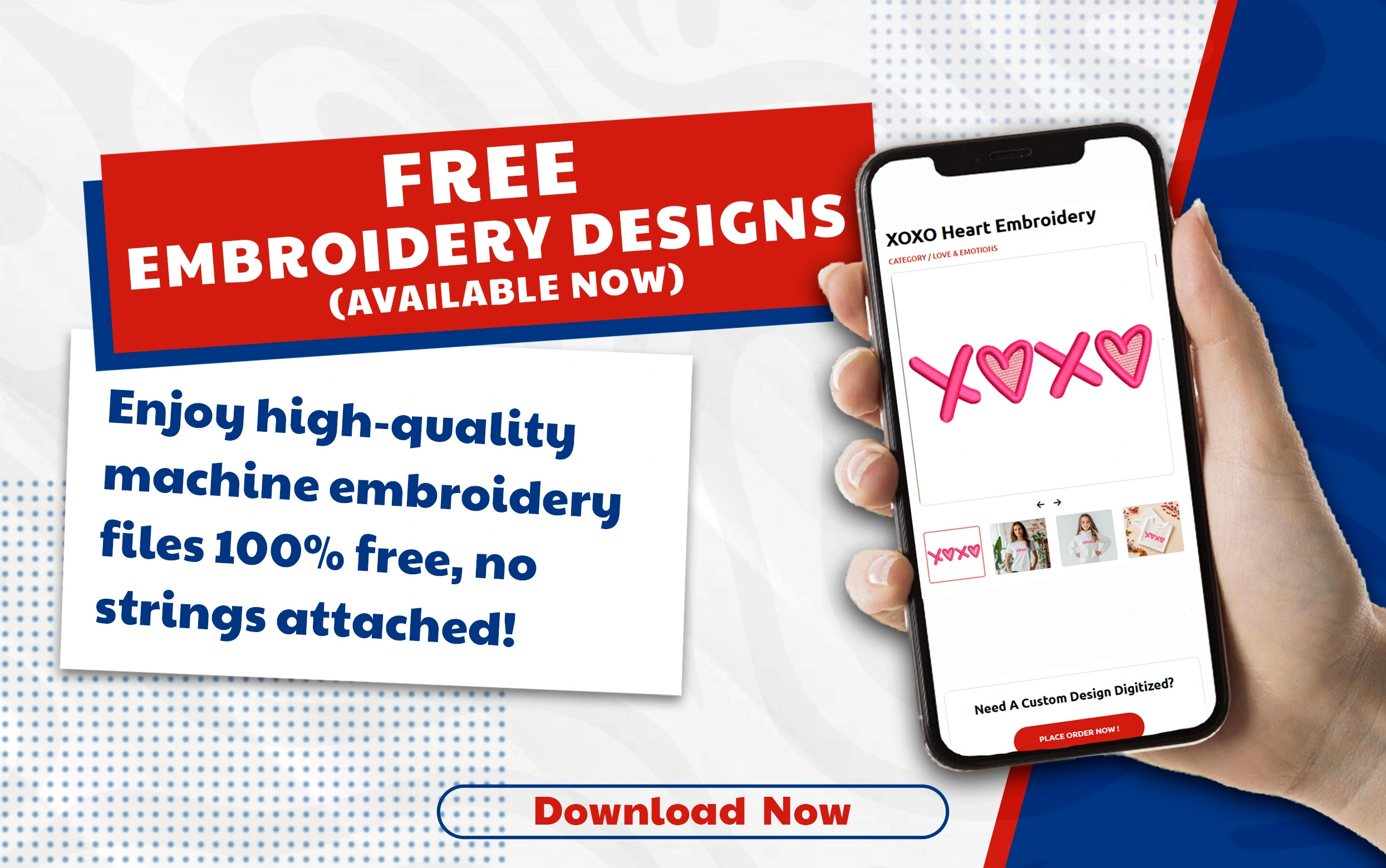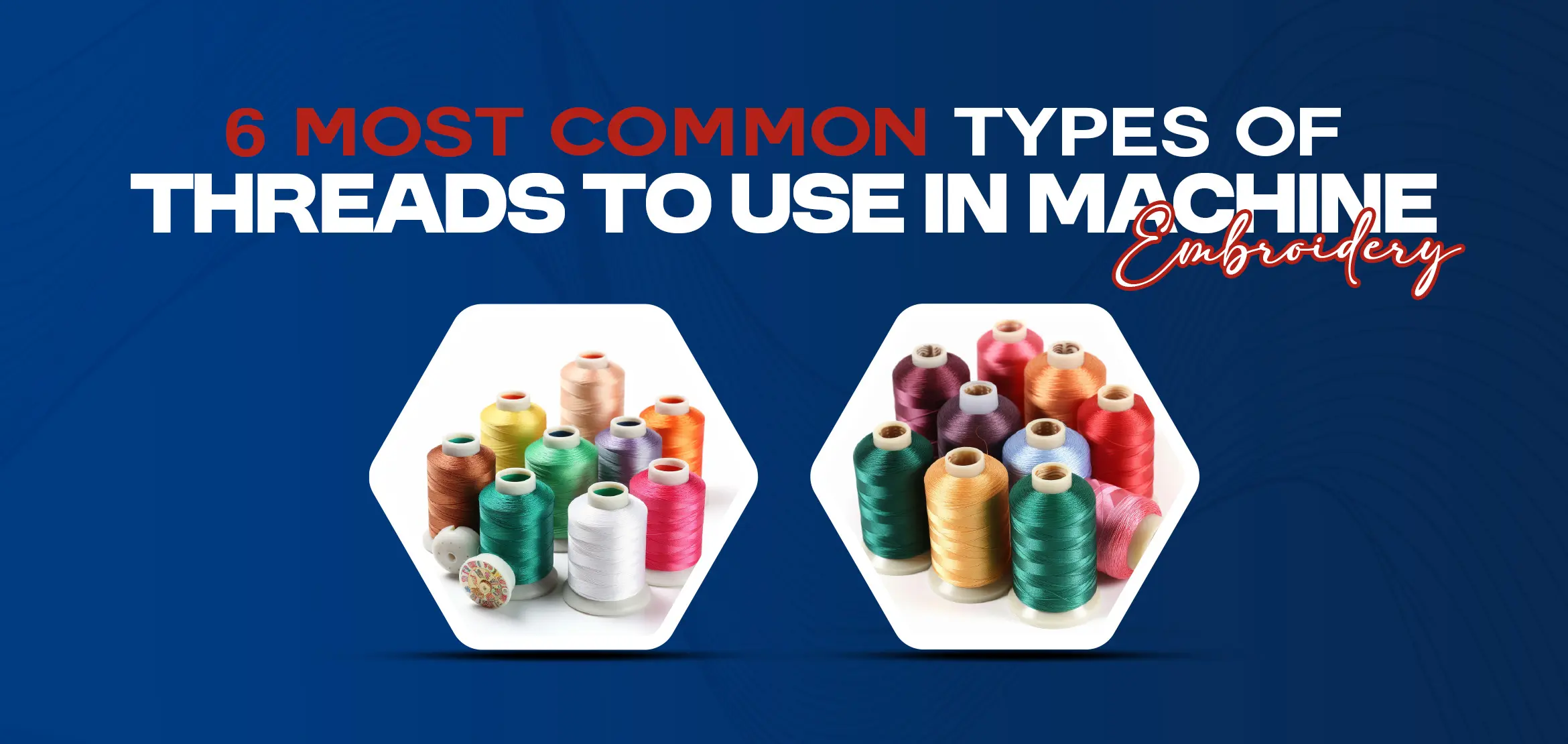
6 Most Common Types of Threads to Use in Machine Embroidery
Threads for Machine Embroidery : Machine embroidery is a fascinating craft that allows you to create intricate designs and patterns on fabric using specialized machines. One of the key components of successful machine embroidery is choosing the right thread. With so many options available, it can be overwhelming to know which thread to use for your project. In this article, we'll explore the six most common types of threads used in machine embroidery, discussing their characteristics, uses, and tips for optimal results.
1. Rayon Thread for Machine Embroidery:
Rayon thread is one of the most popular choices for machine embroidery. It is made from cellulose fibers derived from wood pulp, giving it a smooth and lustrous finish. Rayon thread comes in a wide range of colors and is known for its vibrant and shiny appearance, making it perfect for decorative stitching and intricate designs.
It is also relatively easy to work with and tends to run smoothly through the machine without breaking. However, rayon thread may not be as durable as other types, so it's best suited for projects that won't undergo heavy wear and tear.
2. Polyester Thread for Machine Embroidery:
Polyester thread is another common choice for machine embroidery. Unlike rayon, polyester thread is made from synthetic fibers, which make it more durable and resistant to fading and shrinkage. Polyester thread is available in a vast array of colors and is suitable for a wide range of fabrics, including cotton, denim, and stretchy materials like spandex.
It is known for its strength and stability, making it ideal for designs that require a higher level of durability, such as logos or lettering on work uniforms or sportswear.
3. Cotton Thread for Machine Embroidery:
Cotton thread is a classic choice for machine embroidery, particularly for projects that require a more natural look and feel. It is made from cotton fibers, which give it a soft and matte finish. Cotton thread is available in fewer colors compared to rayon and polyester, but it is still suitable for many embroidery projects, especially those involving quilting, heirloom stitching, or embellishing home décor items like towels and linens.
Keep in mind that cotton thread may not be as strong or colorfast as synthetic threads, so it's essential to choose the right type of cotton thread for your specific project.
4. Metallic Thread for Machine Embroidery:
For adding a touch of sparkle and glamor to your embroidery designs, metallic thread is the way to go. Metallic thread is made from a core of nylon or polyester wrapped with a thin layer of metallic foil, giving it a dazzling shine. It comes in various metallic shades, including gold, silver, and bronze, and is perfect for creating eye-catching accents and highlights.
However, metallic thread can be tricky to work with due to its tendency to unravel and break. To prevent breakage, use a larger needle and reduce the machine's speed when embroidering with metallic thread.
5. Silk Thread for Machine Embroidery:
Silk thread is prized for its luxurious feel and exquisite sheen, making it a favorite among discerning embroiderers. It is made from natural silk fibers, which give it a smooth and glossy finish. Silk thread is available in a limited range of colors but is unmatched in terms of elegance and sophistication.
It is ideal for creating delicate designs and embellishments on fine fabrics like silk, satin, and velvet. However, silk thread can be expensive and may not be as strong or durable as synthetic threads, so it's best reserved for special projects or occasions.
6. Variegated Thread for Machine Embroidery:
Variegated thread features multiple colors blended together in a single strand, creating a beautiful gradient effect when stitched. It is available in various color combinations, from subtle transitions to bold contrasts, making it perfect for adding visual interest and dimension to your embroidery designs.
Variegated thread can be made from rayon, polyester, or cotton, depending on the desired effect. It is versatile and can be used for a wide range of projects, from quilting and appliqué to decorative stitching and embellishments.
Conclusion:
Choosing the right thread is essential for achieving beautiful and professional-looking results in machine embroidery. Each type of thread has its unique characteristics, advantages, and challenges, so it's essential to consider your project's requirements and your personal preferences when selecting the appropriate thread. Whether you opt for the vibrant sheen of rayon, the durability of polyester, or the elegance of silk, experimenting with different types of threads can add depth and texture to your embroidery creations.
]With practice and patience, you'll soon discover which threads work best for your projects. Additionally, for impeccable results and hassle-free digitization, choose our embroidery digitizing services to enhance your embroidery projects further.
FAQs (Frequently Asked Questions)
Q1. What are the key characteristics of rayon thread for machine embroidery?
Rayon thread is known for its smooth and lustrous finish, vibrant and shiny appearance, and ease of use in embroidery machines.
Q2. Why might polyester thread be preferred for certain machine embroidery projects?
Polyester thread is prized for its durability, resistance to fading and shrinkage, and strength, making it ideal for projects that require long-lasting and stable stitching, such as logos on work uniforms or sportswear.
Q3. What makes metallic thread a popular choice for adding embellishments to embroidery designs?
Metallic thread features a core wrapped with metallic foil, giving it a dazzling shine perfect for creating eye-catching accents and highlights in embroidery designs.
Q4. When might silk thread be the preferred choice for machine embroidery?
Silk thread is favored for its luxurious feel, exquisite sheen, and suitability for delicate designs on fine fabrics like silk, satin, and velvet, making it ideal for special projects or occasions.
Q5. How can variegated thread enhance embroidery designs?
Variegated thread, featuring multiple colors blended together, adds visual interest and dimension to embroidery designs by creating beautiful gradient effects, making it versatile for a wide range of projects from quilting to decorative stitching.
